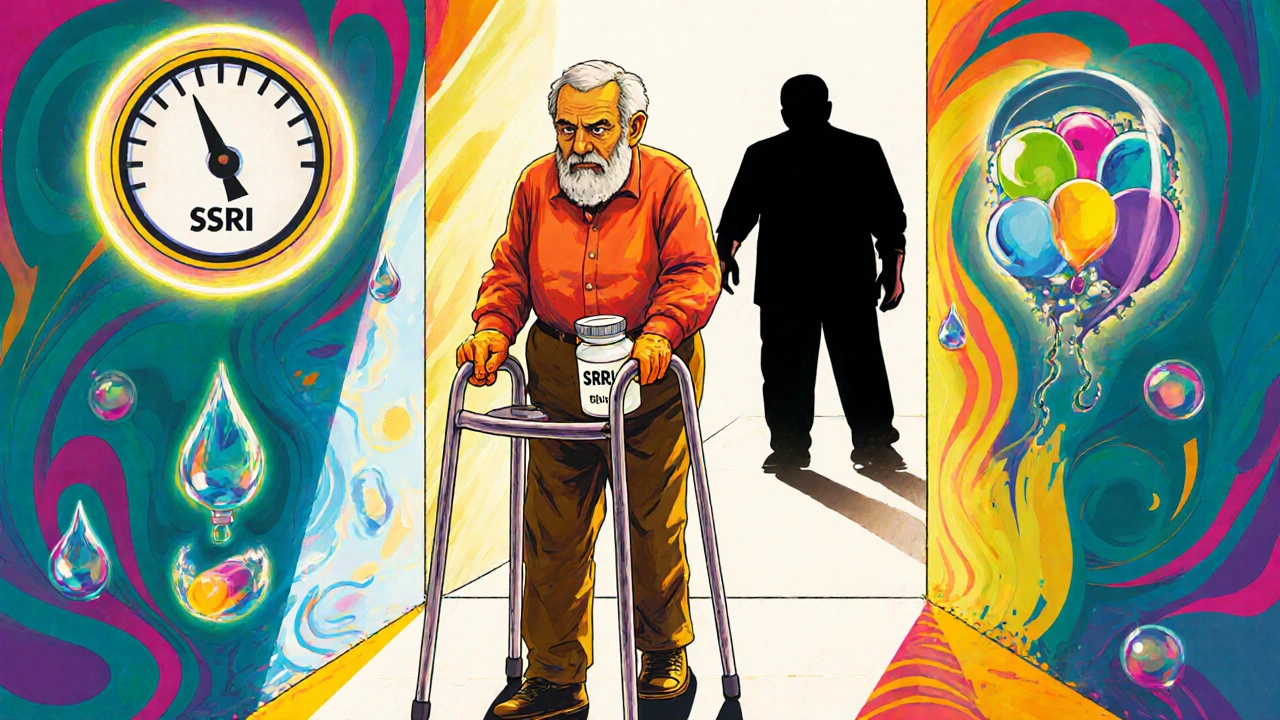Hyponatremia: Causes, Symptoms, and Medication Links
When your blood sodium drops too low, you’re dealing with hyponatremia, a condition where sodium levels in the blood fall below 135 mEq/L, disrupting fluid balance and nerve function. Also known as low sodium, it’s not just about drinking too much water—it’s often tied to medications, kidney issues, or heart failure. Sodium keeps your cells hydrated and your nerves firing right. When it dips, you might feel dizzy, nauseous, or confused. In severe cases, it can trigger seizures or coma.
Many common drugs can cause hyponatremia. diuretics, medications that make you pee more, often used for high blood pressure or swelling are a top culprit. antidepressants, especially SSRIs and tricyclics like amitriptyline and dosulepin, can also mess with your body’s water balance. Even some painkillers and seizure meds have been linked to this issue. It’s not always the drug itself—it’s how your body reacts to it over time.
Hyponatremia doesn’t happen in a vacuum. It often connects to other conditions you might be managing. For example, if you’re on meds for rheumatoid arthritis, a chronic inflammatory disease treated with drugs like sulfasalazine, or dealing with orthostatic hypotension, a drop in blood pressure when standing up, often tied to low blood volume, your fluid and electrolyte balance is already under stress. Add a diuretic or an antidepressant, and the risk goes up.
You might not realize your symptoms are from low sodium. Fatigue, headaches, and brain fog get written off as stress or aging. But if you’re on multiple meds, especially for chronic conditions, it’s worth asking your doctor to check your sodium levels. It’s a simple blood test—and catching it early can prevent serious complications.
What you’ll find below are real-world guides that connect hyponatremia to the drugs you might be taking. From how antidepressants like Endep and Prothiaden affect fluid balance, to how NSAIDs and diuretics play a role, these posts break down the links between your meds and your sodium levels. No fluff. Just clear, practical info to help you understand what’s really going on inside your body.
Older Adults on SSRIs: How to Prevent Hyponatremia and Falls
SSRIs help many older adults with depression, but they can cause hyponatremia-a dangerous drop in blood sodium that increases fall risk. Learn how to prevent it with testing, safer alternatives, and early symptom recognition.

